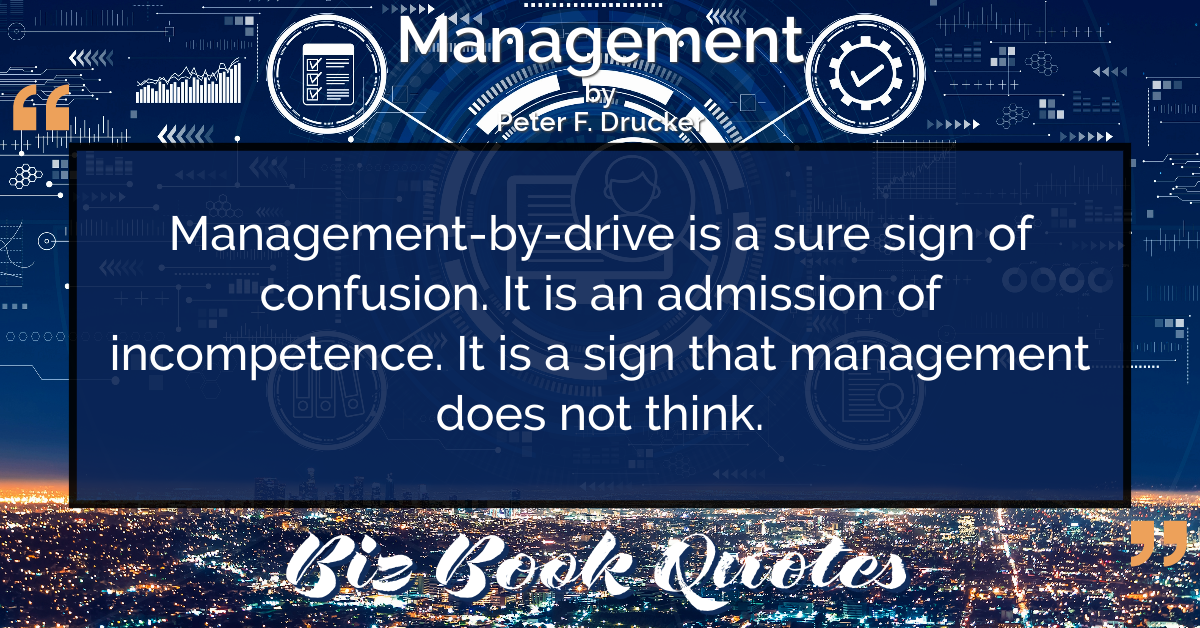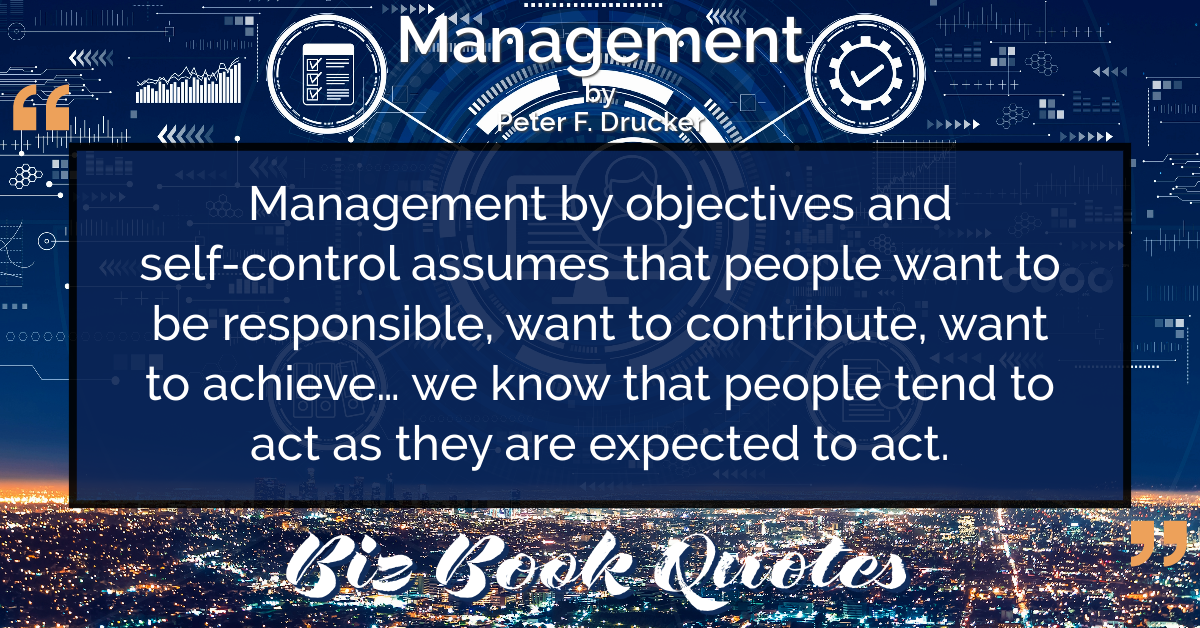|

|
Management:
…no one develops as much as the person who is trying to help others to develop themselves. Indeed, no one can develop himself or herself unless he or she works on the development of others.
|
256 |
|

|
Management:
…communications presuppose common language, and it is precisely that which is usually lacking.
|
260 |
|

|
Management:
To obtain balanced efforts, the objectives of all managers on all levels and in all areas should also be keyed to both short-range and long-range considerations.
|
263 |
|

|
Management:
Management-by-drive is a sure sign of confusion. It is an admission of incompetence. It is a sign that management does not think.
|
264 |
|

|
Management:
The greatest advantage of management by objectives is perhaps that it makes it possible for managers to control their own performance. Self-control means stronger motivation: a desire to do the best rather than do just enough to get by.
|
266 |
|

|
Management:
…if new information technology is abused to impose control on managers from above, it will inflict incalculable harm by demoralizing management and by seriously lowering the effectiveness of managers.
|
266 |
|

|
Management:
Management by objectives and self-control assumes that people want to be responsible, want to contribute, want to achieve… we know that people tend to act as they are expected to act.
|
267 |
|

|
Management:
…the first task of managers is to make effective the strengths of people. And this they can do only if they start out with the assumption that people – and especially managers and professional contributors – want to achieve.
|
267 |
|

|
Management:
In the information-based organization, the knowledge is primarily at the bottom, in the minds of the specialists, who do different work and direct themselves.
|
271 |
|

|
Management:
The purpose of an organization is to enable ordinary human beings to do extraordinary things. It is a means to make strengths productive and weaknesses irrelevant.
|
280 |











